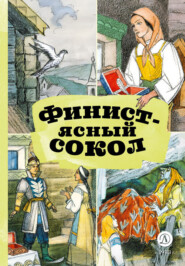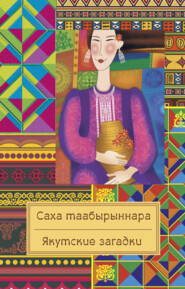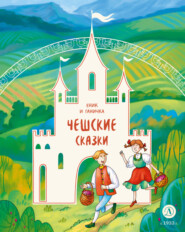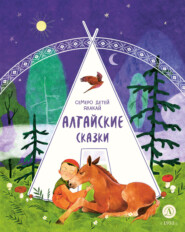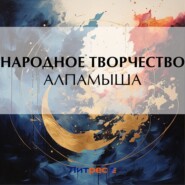По всем вопросам обращайтесь на: info@litportal.ru
(©) 2003-2024.
✖
A plain and literal translation of the Arabian nights entertainments, now entituled The Book of the Thousand Nights and a Night. Volume 7 (of 17)
Год написания книги
2018
Настройки чтения
Размер шрифта
Высота строк
Поля
Bresl. Edit. Al-Zardakhánát Arab. plur. of Zarad-Khánah, a bastard word = armoury, from Arab. Zarad (hauberk) and Pers. Khánah = house etc.
448
Some retrenchment was here found necessary to avoid “damnable iteration.”
449
i.e. Badi’a al-Jamal.
450
Mohammed.
451
Koran xxxv. “The Creator” (Fátir) or the Angels, so called from the first verse.
452
In the Bresl. Edit. (p. 263) Sayf al-Muluk drops asleep under a tree to the lulling sound of a Sákiyah or water-wheel, and is seen by Badi’a al-Jamal, who falls in love with him and drops tears upon his cheeks, etc. The scene, containing much recitation is long and well told.
453
Arab. “Lukmah” = a bouchée of bread, meat, fruit or pastry, and especially applied to the rice balled with the hand and delicately inserted into a friend’s mouth.
454
Arab. “Saláhiyah,” also written Saráhiyah: it means an ewer-shaped glass-bottle.
455
Arab “Sarmújah,” of which Von Hammer remarks that the dictionaries ignore it; Dozy gives the forms Sarmúj, Sarmúz and Sarmúzah and explains them by “espèce de guêtre, de sandale ou de mule, qu’on chausse par-dessus la botte.”
456
In token of profound submission.
457
Arab. “Misr” in Ibn Khaldún is a land whose people are settled and civilised hence “Namsur” = we settle; and “Amsár” = settled provinces. Al-Misrayn was the title of Basrah and Kufah the two military cantonments founded by Caliph Omar on the frontier of conquering Arabia and conquered Persia. Hence “Tamsír” = founding such posts, which were planted in Mesopotamia, Syria and Egypt. In these camps were stationed the veterans who had fought under Mohammed; but the spoils of the East soon changed them to splendid cities where luxury and learning flourished side by side. Sprenger (Al-Mas’údi pp. 19, 177) compares them ecclesiastically with the primitive Christian Churches such as Jerusalem, Alexandria and Antioch. But the Moslems were animated with an ardent love of liberty and Kufah under Al-Hajjaj the masterful, lost 100,000 of her turbulent sons without the thirst for independence being quenched. This can hardly be said of the Early Christians who, with the exception of a few staunch-hearted martyrs, appear in history as pauvres diables and poules mouillées, ever oppressed by their own most ignorant and harmful fancy that the world was about to end.
458
i.e. Waiting to be sold and wasting away in single cursedness.
459
Arab. “Yá dádati”: dádat is an old servant-woman or slave, often applied to a nurse, like its congener the Pers. Dádá, the latter often pronounced Daddeh, as Daddeh Bazm-árá in the Kuisum-nameh (Atkinson’s “Customs of the Women of Persia,” London, 8vo. 1832).
460
Marjánah has been already explained. D’Herbelot derives from it the Romance name Morgante la Déconvenue, here confounding Morgana with Urganda; and Keltic scholars make Morgain = Mor Gwynn—the white maid (p. 10, Keightley’s Fairy Mythology, London, Whittaker, 1833).
448
Some retrenchment was here found necessary to avoid “damnable iteration.”
449
i.e. Badi’a al-Jamal.
450
Mohammed.
451
Koran xxxv. “The Creator” (Fátir) or the Angels, so called from the first verse.
452
In the Bresl. Edit. (p. 263) Sayf al-Muluk drops asleep under a tree to the lulling sound of a Sákiyah or water-wheel, and is seen by Badi’a al-Jamal, who falls in love with him and drops tears upon his cheeks, etc. The scene, containing much recitation is long and well told.
453
Arab. “Lukmah” = a bouchée of bread, meat, fruit or pastry, and especially applied to the rice balled with the hand and delicately inserted into a friend’s mouth.
454
Arab. “Saláhiyah,” also written Saráhiyah: it means an ewer-shaped glass-bottle.
455
Arab “Sarmújah,” of which Von Hammer remarks that the dictionaries ignore it; Dozy gives the forms Sarmúj, Sarmúz and Sarmúzah and explains them by “espèce de guêtre, de sandale ou de mule, qu’on chausse par-dessus la botte.”
456
In token of profound submission.
457
Arab. “Misr” in Ibn Khaldún is a land whose people are settled and civilised hence “Namsur” = we settle; and “Amsár” = settled provinces. Al-Misrayn was the title of Basrah and Kufah the two military cantonments founded by Caliph Omar on the frontier of conquering Arabia and conquered Persia. Hence “Tamsír” = founding such posts, which were planted in Mesopotamia, Syria and Egypt. In these camps were stationed the veterans who had fought under Mohammed; but the spoils of the East soon changed them to splendid cities where luxury and learning flourished side by side. Sprenger (Al-Mas’údi pp. 19, 177) compares them ecclesiastically with the primitive Christian Churches such as Jerusalem, Alexandria and Antioch. But the Moslems were animated with an ardent love of liberty and Kufah under Al-Hajjaj the masterful, lost 100,000 of her turbulent sons without the thirst for independence being quenched. This can hardly be said of the Early Christians who, with the exception of a few staunch-hearted martyrs, appear in history as pauvres diables and poules mouillées, ever oppressed by their own most ignorant and harmful fancy that the world was about to end.
458
i.e. Waiting to be sold and wasting away in single cursedness.
459
Arab. “Yá dádati”: dádat is an old servant-woman or slave, often applied to a nurse, like its congener the Pers. Dádá, the latter often pronounced Daddeh, as Daddeh Bazm-árá in the Kuisum-nameh (Atkinson’s “Customs of the Women of Persia,” London, 8vo. 1832).
460
Marjánah has been already explained. D’Herbelot derives from it the Romance name Morgante la Déconvenue, here confounding Morgana with Urganda; and Keltic scholars make Morgain = Mor Gwynn—the white maid (p. 10, Keightley’s Fairy Mythology, London, Whittaker, 1833).







